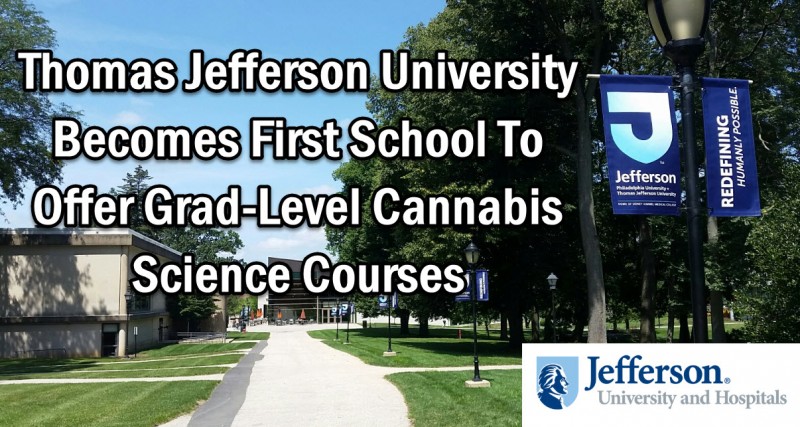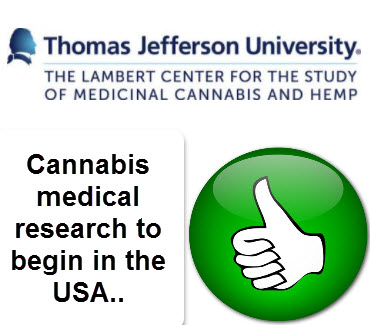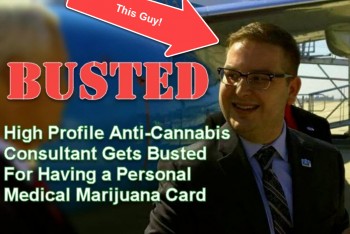Thomas Jefferson University Becomes First School To Offer Grad-Level Cannabis Science Courses
Grad School Classes in Weed? Thomas Jefferson University Starts Grad-Cannabis from CannabisNet on Vimeo.
Thirty US states have already legalized cannabis in some form or another. The multi-billion-dollar cannabis industry is only expected to grow leaps and bounds, and has been one of the fastest-growing sectors in the economy.
However, healthcare providers and doctors around the country still don’t have adequate training in cannabis science, which makes them hesitant to recommend cannabis. The lack of professional medical knowledge about the most powerful natural medicine we have on our hands today is worrisome. And when you combine it with the fact that cannabis remains a federally illegal substance despite mounting solid evidence of its therapeutic benefits in treating life-threatening conditions, doctors in the USA are faced with a serious quandary.
Last year, a Washington University School of Medicine survey of school deans, residents, fellows, and medical students revealed that there was a dearth of training on medical cannabis from today’s med schools. “Medical education needs to catch up to marijuana legislation,” says the study’s senior author Laura Jean Beirut, MD. “Physicians in training need to know the benefits and drawbacks associated with medical marijuana so they know when or if, and to whom, to prescribe the drug.” They sent out a questionnaire and received 101 responses, which indicated that 66.7% of schools said that their graduates don’t have the preparations needed to prescribe medical cannabis. They also discovered that a quarter of deans admitted that their trainees are not skilled enough to answer any cannabis-related questions. Almost 90% of 258 residents said that they weren’t confident in prescribing medical cannabis, and 85% said that they did not receive any education about the medicinal uses of pot during their studies at medical schools or residency programs around the country. What’s even worse is that the students know more about prescribing opioids than they do with cannabis. “We talk about how those drugs can affect every organ system in the body, and we learn how to discuss the risks and benefits with patients. But if a patient were to ask about medical marijuana, most medical students wouldn’t know what to say,” says Evanoff, one of the medical students surveyed.
Hopefully, that will change in the near future. Philadelphia’s Thomas Jefferson University has now become the country’s first and only university to offer a graduate-level cannabis science certificate program.
The Lambert Center for the Study of Medicinal Cannabis and Hemp at the Thomas Jefferson University has been created specifically to address the educational needs of cannabis healthcare professionals.
“With the ever-evolving legislative and regulatory environment, accumulating data and diverse political commentary on the topic of medical marijuana, there exists a vast knowledge gap,” says Charles Pollack, MD, the director of the Jefferson Institute of Emerging Health Professions at the Lambert Center. “Our goal at the Lambert Center is to help expand the knowledge base of scientists and clinicians – physicians of every specialty, nurses, nurse practitioners, physician assistants and pharmacists – and these new programs will help advance the knowledge and treatment around medicinal cannabis.”
They will be offering three certificate programs in coordination with the Center for Forensic Science Research and Education (CFSRE) at the Fredric Rieders Family Foundation, who has been a pioneer in forensics for over 20 years. These programs include:
The Cannabis Medicine Certificate, which is designed for clinicians who want to deepen their knowledge about the appropriate medicinal cannabis use to be incorporated into their practice. It will include pathologic and pharmacological concepts, current cannabinoid treatments, as well as peer-reviewed data about cannabis as adjunct or an alternative for conventional therapies. The certificate program will also include a thorough review of various debates about cannabis in the social, cultural, and political landscape.
The Cannabinoid Pharmacology Certificate, is targeting researchers and scientists who want to learn more about how cannabis works in the human body. It will also include information on how the body metabolizes and gets rid of cannabis and cannabinoids.
The Cannabinoid Chemistry and Toxicology Certificate is designed for those who are employed in regulating legal cannabis products and scientists. It will cover cannabis botany, cannabis propagation, biological samples, and products to better understand the concepts behind quality control for cannabis products.
All certificate programs are a year long, and will include four three-credit academic courses that are centered on evidence-based medicine. Ten out of the 12 courses will be made available online.
This fall, they will start with the launch of graduate certificates for Cannabis Medicine and Cannabinoid Pharmacology, while next year they will launch the Cannabinoid Chemistry and Toxicology Graduate Certificate.
Thomas Jefferson University Becomes First School To Offer Grad-Level Cannabis Science Courses from CannabisNet on Vimeo.
OTHER STORIES YOU MAY ENJOY...
THOMAS JEFFERSON UNIVERSITY AND CANNABIS REASEACH, CLICK HERE.








